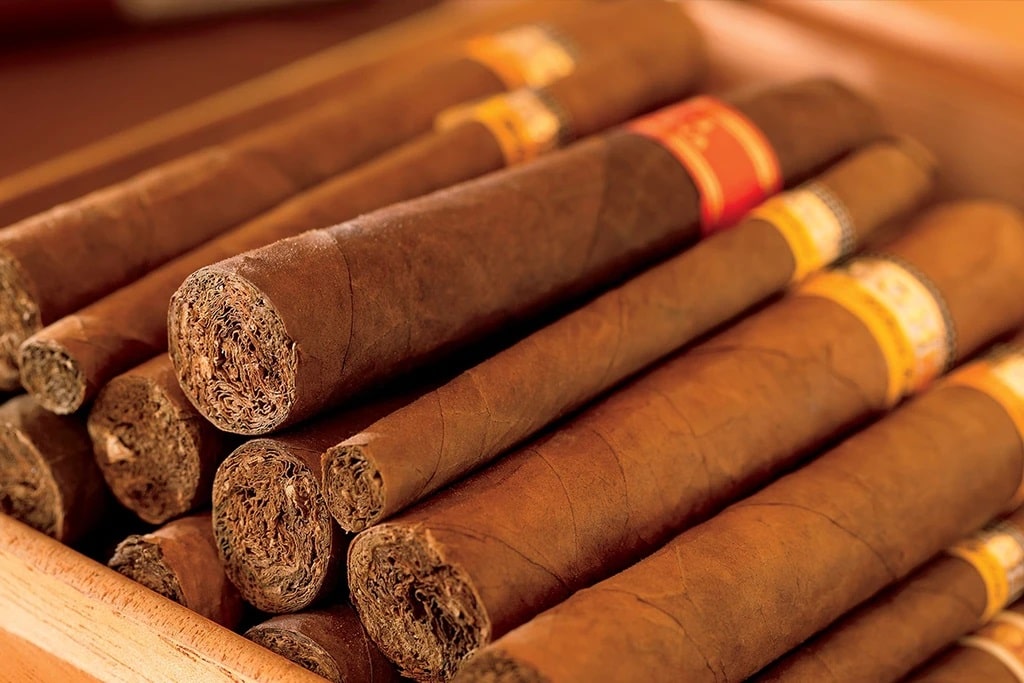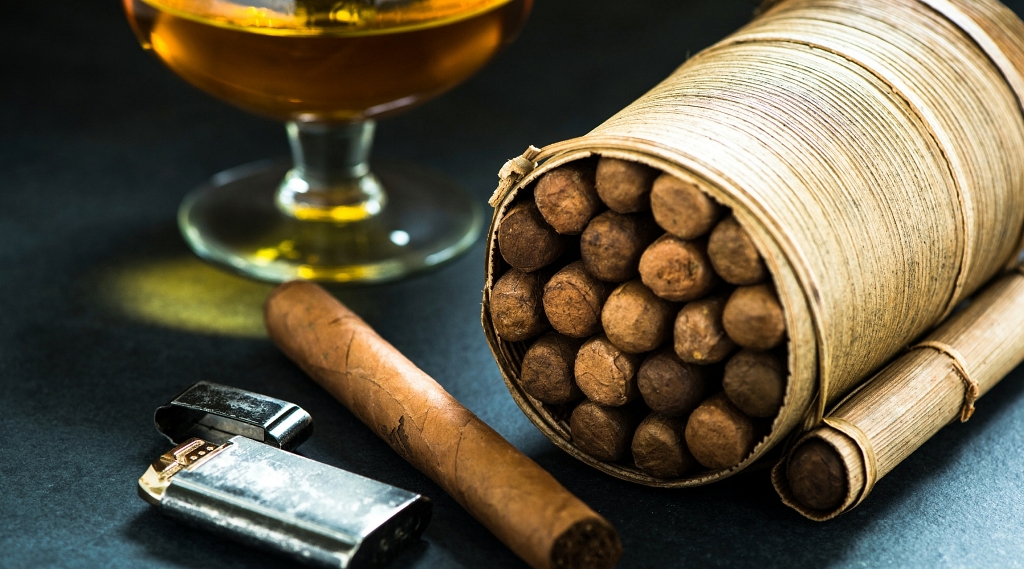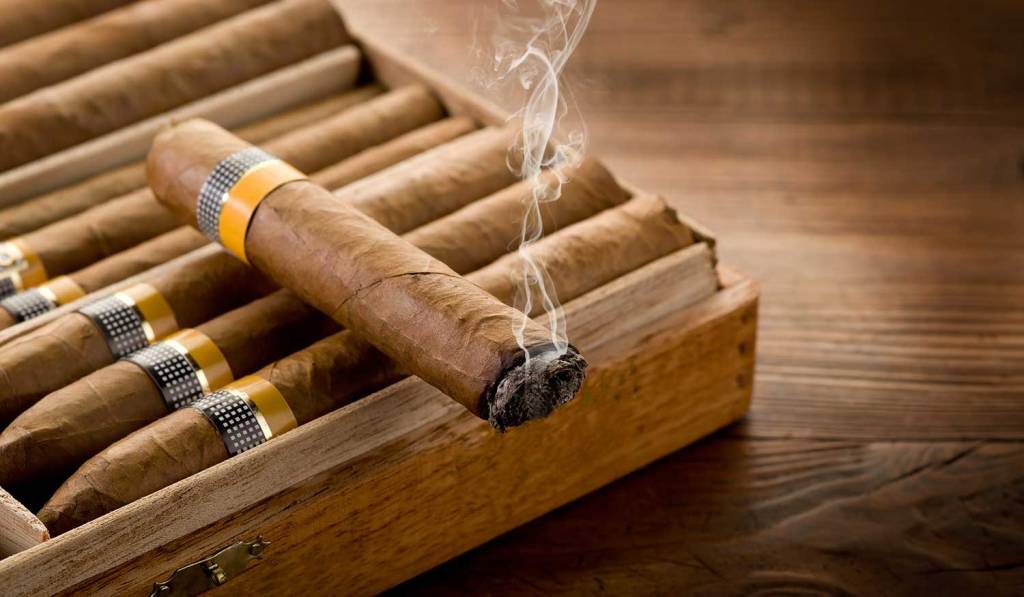Cuban cigars are popular all over the world. They are considered to be the finest cigars on the market. The truth is that tobacco has been grown in Cuba for hundreds of years, and since the time of King Phillip II of Spain, farmers have been making cigars in that region (1527-1598). Currently, Cuba’s cigar sector is regulated by direct government legislation. This governmental oversight acts as a quality check of the goods, in place to ensure that any cigar leaves the plant is well crafted, well rolled and does not include defects.
Where do they come from?
The heartland of Cuban cigar development is Pinar del Río, the westernmost province of the island, where 70% of premium cigar tobacco used by state-owned cigar firms is produced. Cuban tobacco growers believe that the terroir of the area is the fundamental influence on production, the particular environmental factors that affect the crop. But certain cigar connoisseurs still contend that cigars from countries like Nicaragua and the Dominican Republic, regarded as New World cigars, have been both desirable and reliable on the market.
Cuban cigars stand out among other cigars around the world because they are crafted of good quality ingredients and a lot of care and consideration goes into the creation of a single cigar. In fact, it has been calculated that more than one hundred steps are required to properly produce a single Cuban cigar. The industry maintains a thorough cigar-making ritual that has not modified significantly over the last hundred years or so. Another feature that sets these cigars apart from cigars manufactured in other countries is this devoted care and attention.
Unfortunately, these cigars are not widely accessible. Although there are a number of fakes on the street that can be bought very quickly, it’s hard to find authentic Cuban cigars outside of Cuba. However, the fact that these cigars are not easy to find has just rendered them all the more attractive in the country. Cuban cigars were still common in the United States when John F. Kennedy put up an economic embargo on Cuba in the early 1960s. After the embargo was in effect, nevertheless, these cigars became ever more common. Although it is now feasible to visit Cuba and carry a small number of these cigars back home, U.S. law also blocks the commercial import of Cuban cigars.

Why are they so costly, huh?
Cuban cigars have a reputation as the most opulent tobacco commodity in the country. A box of high quality Habanos will cost thousands of dollars. Any hand-rolled Cuban cigar conducts around 500 manual tasks from seed to cigar. But in the last 25 years, cigars produced in other Caribbean and Central American countries have been equal in quality, accuracy and expense. Worse yet for American smokers, the Cuban cigar may be false. Some analysts say that up to 95% of the Cuban cigars in the US are potentially fraudulent. Why are Cuban cigars so attractive, then? And why are they so expensive? The culture of cigar making in Cuba has not shifted for more than 200 years. In a phase that lasts around a year, tobacco leaves are produced, processed, and hanging in drying houses called secaderos until slow fermentation occurs, which improves the taste, fragrance, and burning characteristics. Each leaf is examined for its form, appearance and consistency and handed over to a torcedor, a highly skilled cigar roller, highly regarded in Cuban society.
Anything else that distinguishes these cigars from most cigars around the world is the fact that they are produced using only Cuban tobacco. Most smokers may not know that most other cigars are produced from a combination of different varieties of tobacco. This is not evil in itself, and many smokers find the blending of multiple forms of tobacco very desirable. The hardcore smoker, though, knows that the best, most genuine smoke still comes from the Cuban cigar and only the Cuban cigar. It should be remembered that smoking one of these cigars should not be undertaken lightly. These cigars have a good scent and taste; in reality, for this very reason, many novice smokers do not like them much.
A long past, a special taste
First of all, tobacco has been cultivated in Cuba for hundreds of years, and farmers have a wealth of expertise to draw from. Plus tobacco is like grapes since it takes flavors from the soil on which it is produced, so just Cuban tobacco tastes like Cuban tobacco. Island cigar makers have a special product that no one else can duplicate.
It so happens that Cuban tobacco is excellent for cigars, with plants from the west of the country being especially highly regarded. Travel to the region around the tourist town of Vinales where you’ll find countless tobacco fields, thanks to the wonderful taste that the soil brings to cigars.

As a valuable product
Although raw materials for Cuban cigars are of the highest standard owing to natural properties and human intelligence, there is still a selling factor at stake. In the first half of the 20th century, Cuba became a playground for rich Americans and cigars for riches and prosperity in the United States.
Since the Cuban revolution and the imposition of the US trade blockade, Americans were no longer allowed to enter Cuba quickly, and it was difficult to buy cigars. This was only applied to the mystique.
What’s next for the Cuban cigars?
In comparison, the Communist Government of Cuba has a strong grasp on the cigar business. Although this ensures that stringent quality controls are in effect, it also helps Havana officials to monitor stocks and hold prices up. That, in fact, makes cigars more attractive.
Cuba may be associated with cigars, but there are competing manufacturers out there. In reality, aficionados say that certain Nicaraguan cigars are actually of better quality than their Cuban rivals. However, nothing matches the allure of a Cuban cigar for casual smokers.






